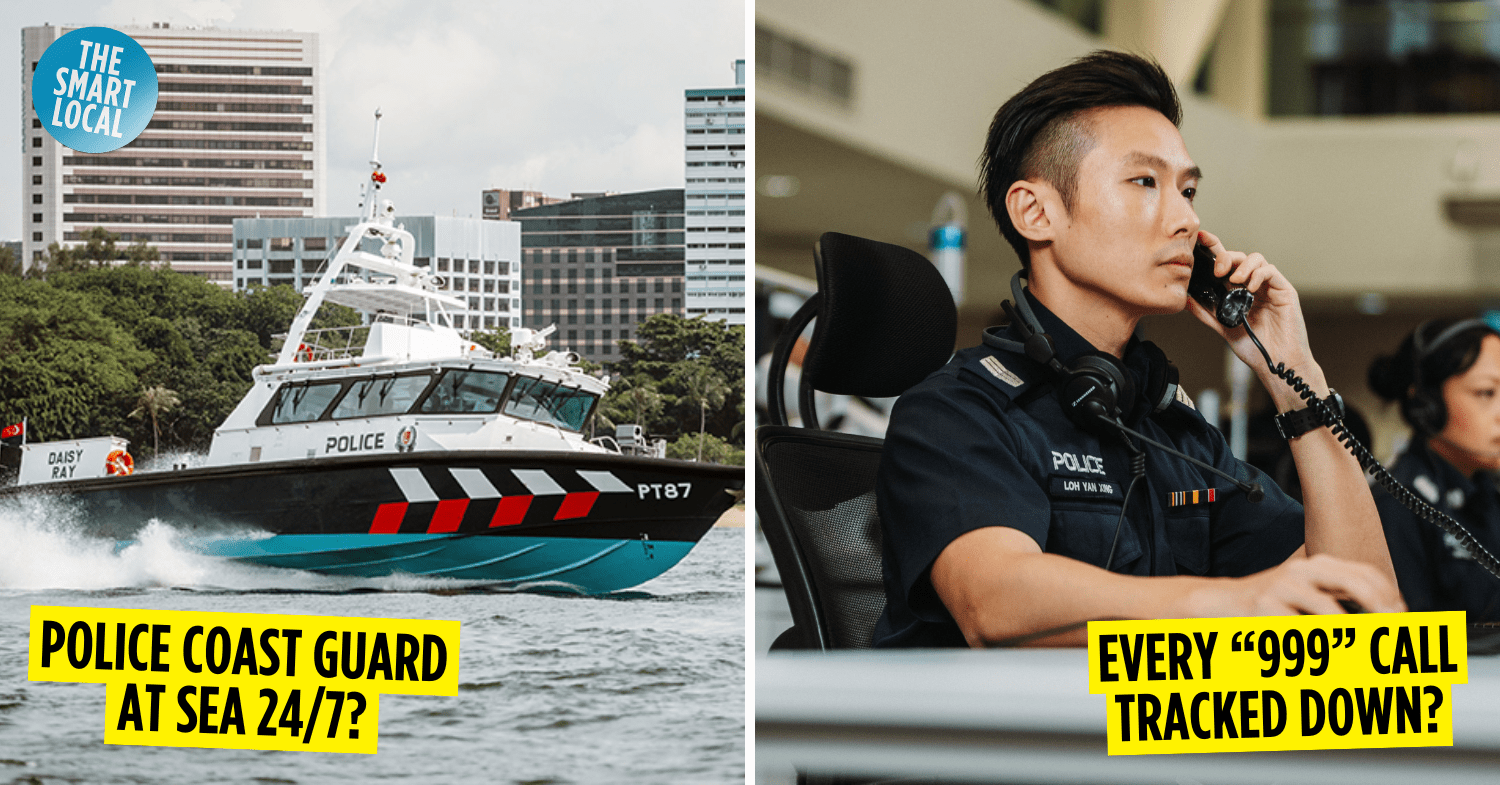Questions on Singapore Police Force’s units answered
As someone who’d grown up watching old-school Hong Kong Police dramas, I’ve definitely dabbled with the idea of joining the Force myself. Like many kids, 10-year-old me pictured myself in the shoes of the dashing Bosco Wong, and daydreamed about chasing perps down the streets.
But in reality, donning the navy blue uniform isn’t only about looking all suave while bringing down the hammer on criminals. We answer some common questions and misconceptions about the various units of the Singapore Police Force (SPF), from finding out about the SPF’s elite STAR Unit to the technologies the Force uses to crack cases.
Table of Contents
- Questions on Singapore Police Force’s units answered
- 1. Do K-9 dogs have ranks like their handlers?
- 2. Why do only a small handful of STAR Unit trainees complete the course successfully?
- 3. Do the Singapore Police Force’s specialist units only accept men?
- 4. Do Police Coast Guard Officers have odd-hour or multiple day shifts due to their unique work environment?
- 5. Does the Criminal Investigation Department use any cool technology to aid their investigations?
- 6. Does the Singapore Police Force log & track down every caller who dials “999”?
- 7. Since Singapore is such a safe country, is there still a need for officers to train?
1. Do K-9 dogs have ranks like their handlers?
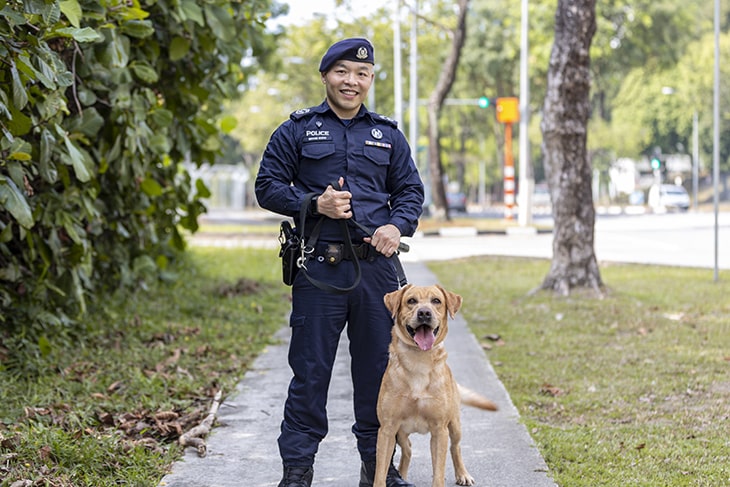
Image credit: SPF
You’ve probably heard this one being tossed around a lot, especially if you’re not familiar with the whole ranking hierarchy in the SPF. Even more absurd, you might have caught wind of rumours stating that K-9 dogs are given ranks that are above their handlers to prevent mistreatment.
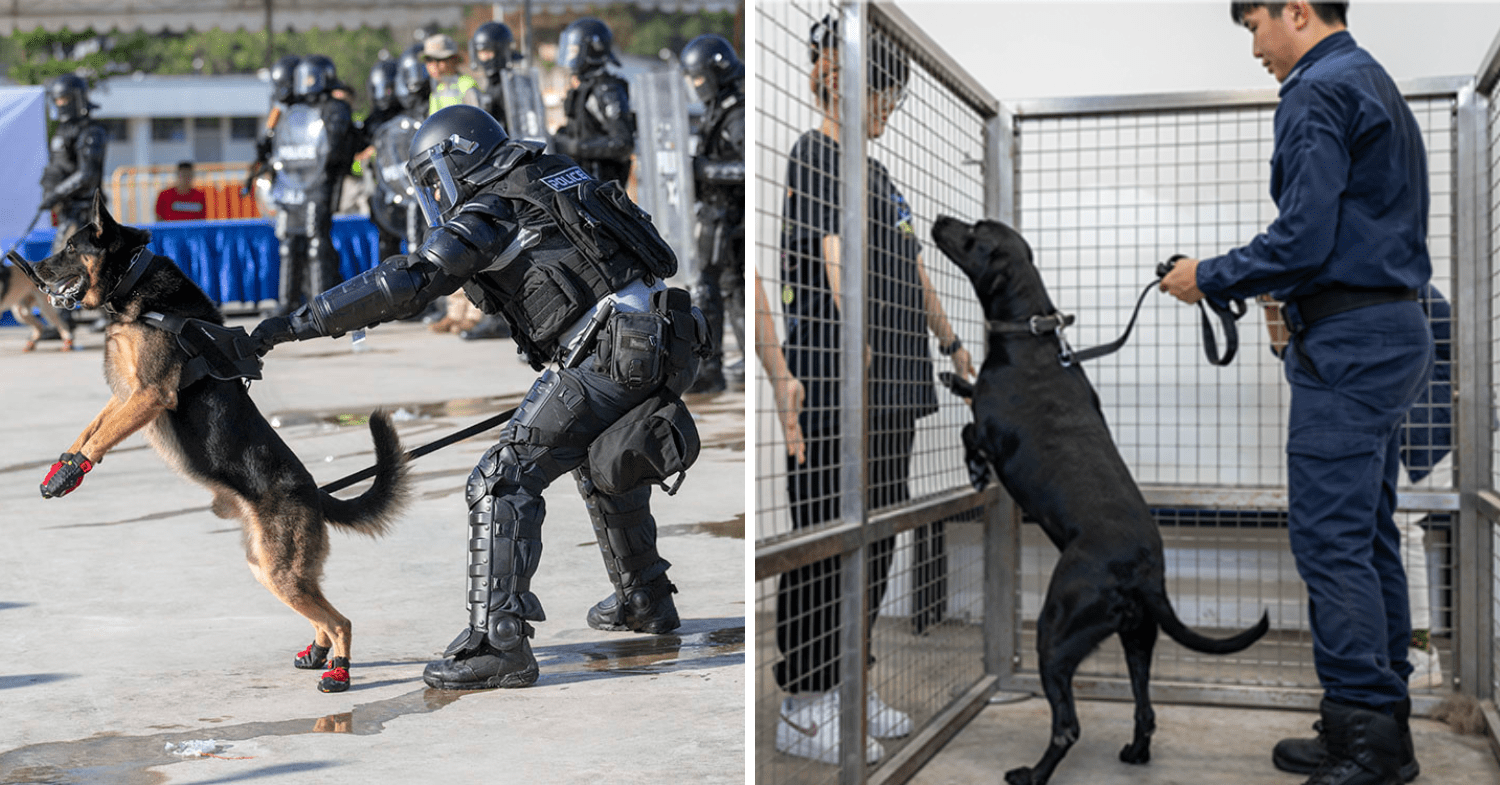 The Police K-9 Unit trains their canines to take up roles such as Public Security Dogs and Narcotic Detection Dogs.
The Police K-9 Unit trains their canines to take up roles such as Public Security Dogs and Narcotic Detection Dogs.
Image adapted from: SPF
This is not true, as K-9 dogs do not have ranks at all. However, do not let this detract from the fact that they are equally as well-trained as their handlers. These faithful companions are carefully selected, and are then equipped with specialised skills to aid officers with their duties.
Both K-9 dogs and their handlers are required to undergo at least 12 weeks of training together in order to carry out their duties proficiently. The process is crucial towards forging and strengthening their bond. Outside of training, the handlers also groom, walk, exercise, and play with their companions, to further build trust between officer and dog.
2. Why do only a small handful of STAR Unit trainees complete the course successfully?
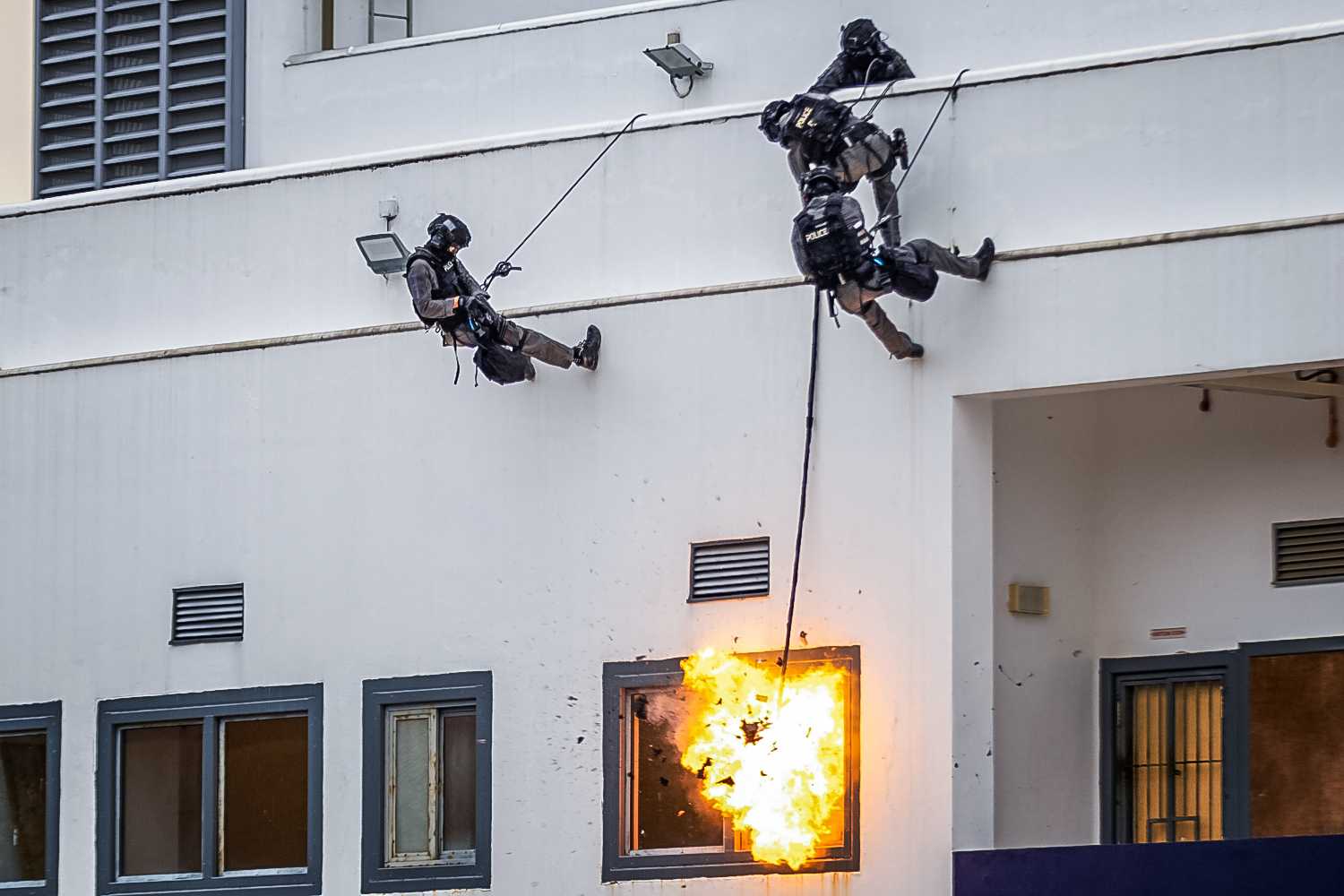 Image credit: SPF
Image credit: SPF
In case you didn’t know, operators in the Special Tactics and Rescue (STAR) Unit are the ones to call on when it comes to operations like hostage rescue, arresting dangerous suspects, and responding to security threats.

The STAR Unit in action during a tactical demonstration.
Image credit: SPF
Since the STAR Unit is dedicated to providing the SPF with the highest level of tactical armed response, STAR Operators have to be the best of the bunch. They are put through a gruelling selection process to ensure that they are physically and mentally resilient so they can confront a range of dynamic situations proficiently.
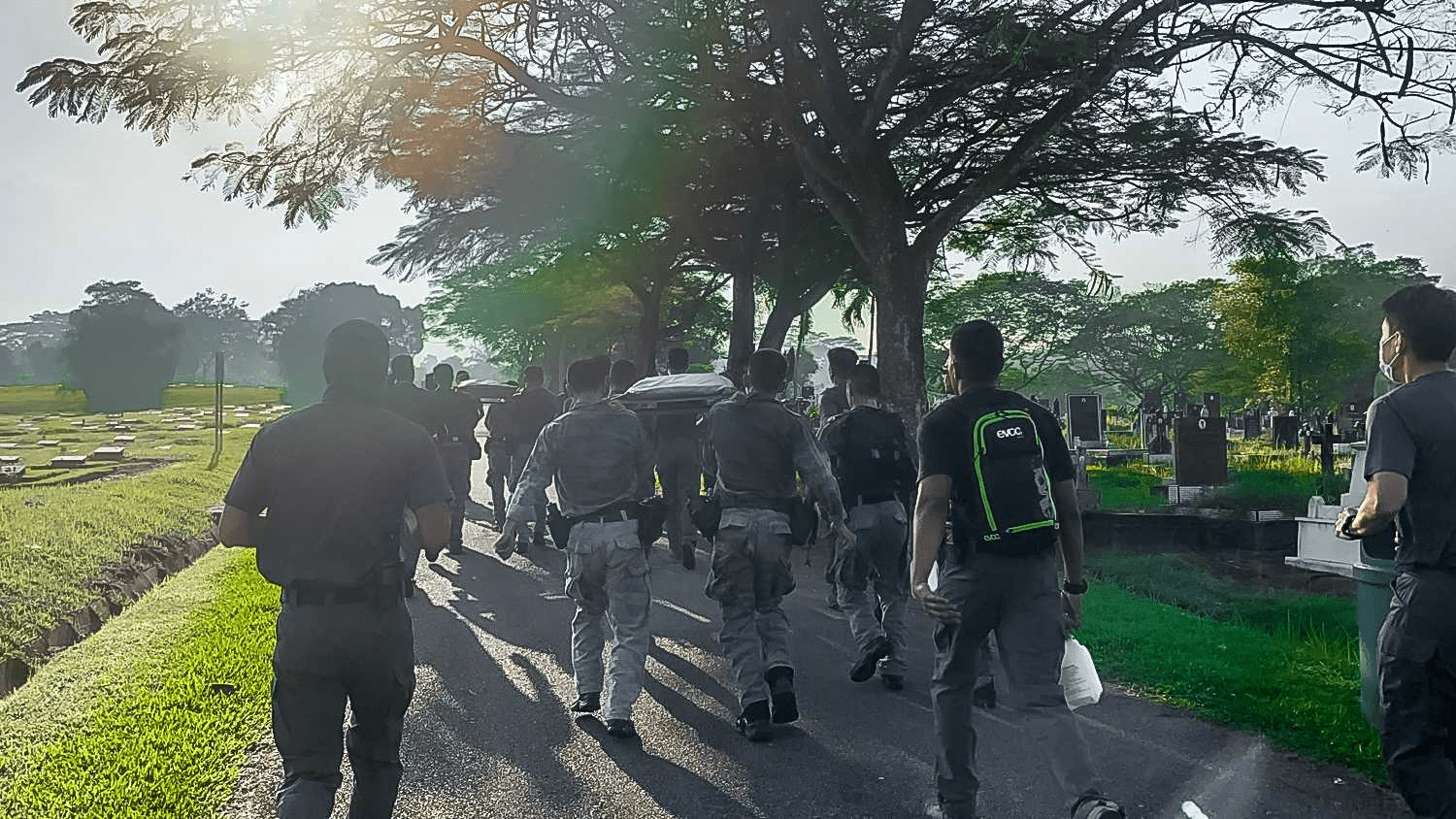 STAR Unit trainees toughing it out during selection week.
STAR Unit trainees toughing it out during selection week.
Image credit: SPF
As such, only about 10% of trainees go on to become full-fledged STAR Operators, but if you think you’re up for the challenge, don’t let the unit’s exclusivity deter you. The STAR Unit has been conducting direct recruitment from the public since 2014 to widen its talent pool, so who knows, you might just have what it takes to bump shoulders with the SPF’s elite.
3. Do the Singapore Police Force’s specialist units only accept men?
In short, no. The SPF’s specialised units such as Special Operations Command (SOC) and Police Coast Guard welcome both male and female officers.
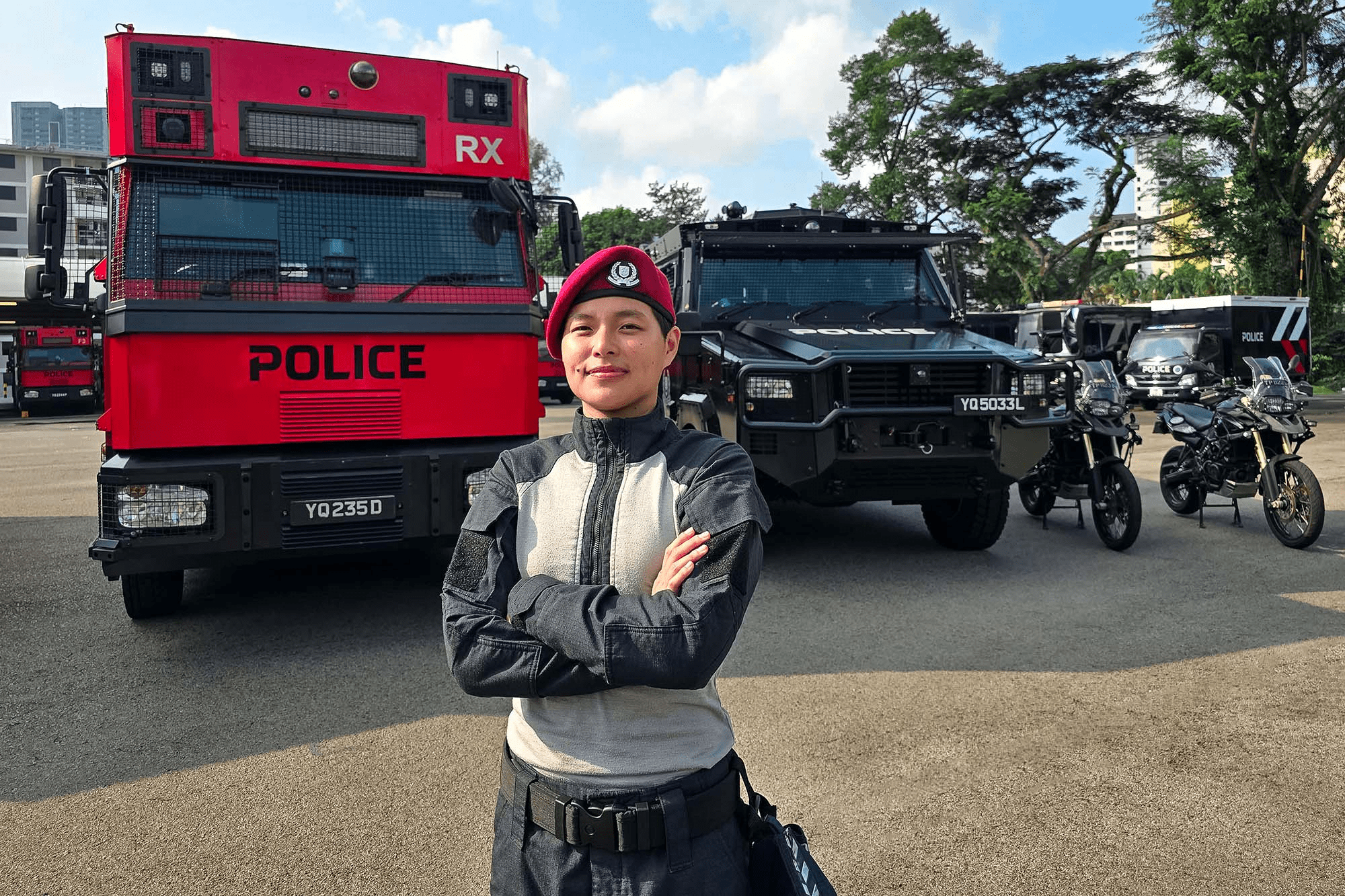 ASP Candy Ko proudly donning her well-earned red beret of the SOC.
ASP Candy Ko proudly donning her well-earned red beret of the SOC.
Image credit: SPF
It is definitely not unheard of for female officers to rise above their male counterparts and excel in these specialist units. Coincidentally, it was earlier this year when ASP Candy Ko became the first female to complete the tough 24 week-long Tactical Course and Armed Strike Team Course for the Police Tactical Unit within the SOC.
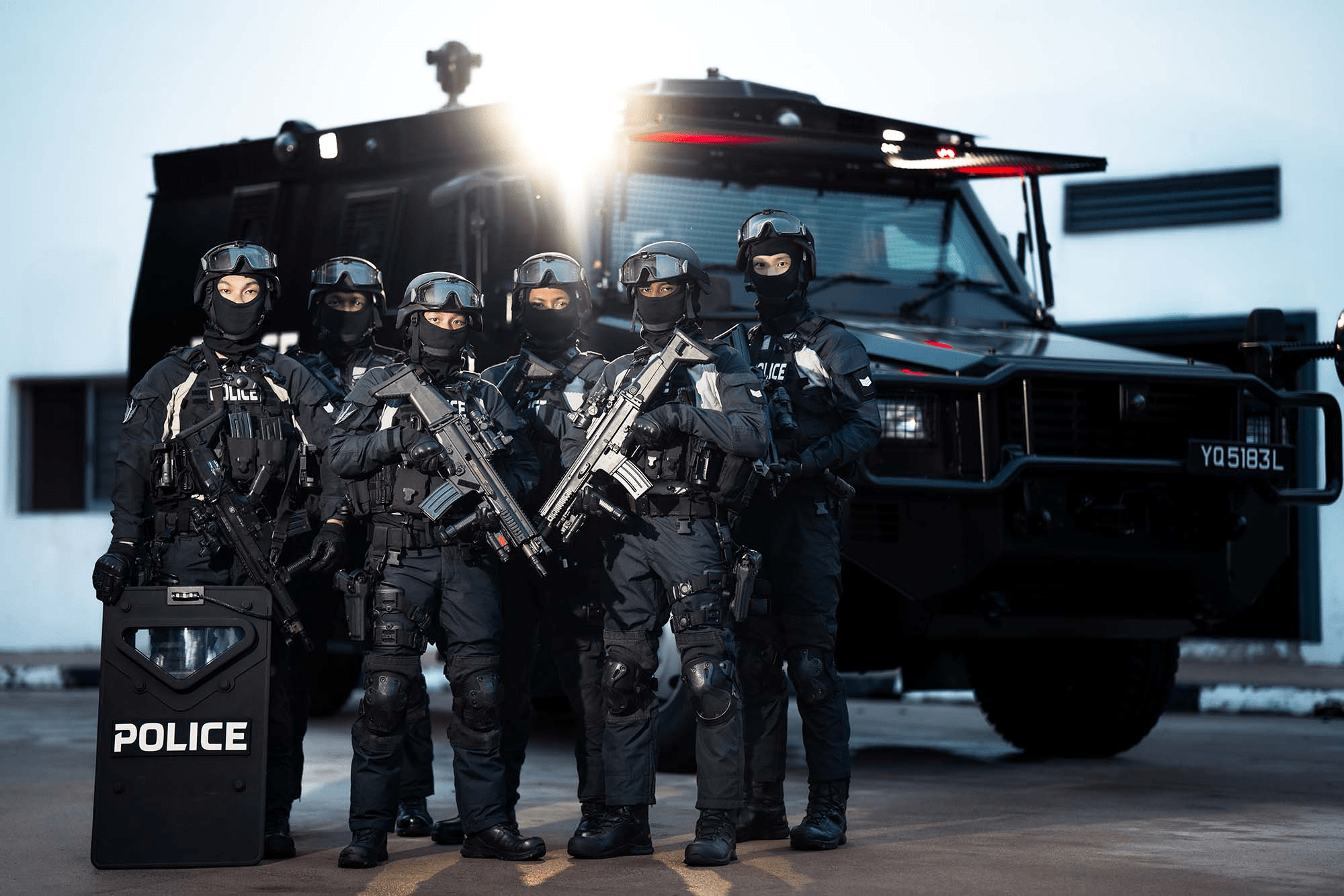 ASP Candy Ko, third from left, alongside her troopmates.
ASP Candy Ko, third from left, alongside her troopmates.
Image credit: SPF
She overcame challenges such as attaining IPPT Gold even after having just given birth to her son 2 years prior. She also conquered the Tactical Course’s final 16km route march while wearing weighted vests and carrying weapons, proving to all that women in the Force are just as capable as the guys whom they train alongside.
4. Do Police Coast Guard Officers have odd-hour or multiple day shifts due to their unique work environment?
Keeping watch over Singapore’s expanse waters is no mean feat, and we’ve got the Police Coast Guard (PCG) to thank for keeping our shores safe all year round. They safeguard the security and safety of our seas with the watchful eyes of their 8 staff branches and 12 line units, and their officers have both maritime and active policing duties.
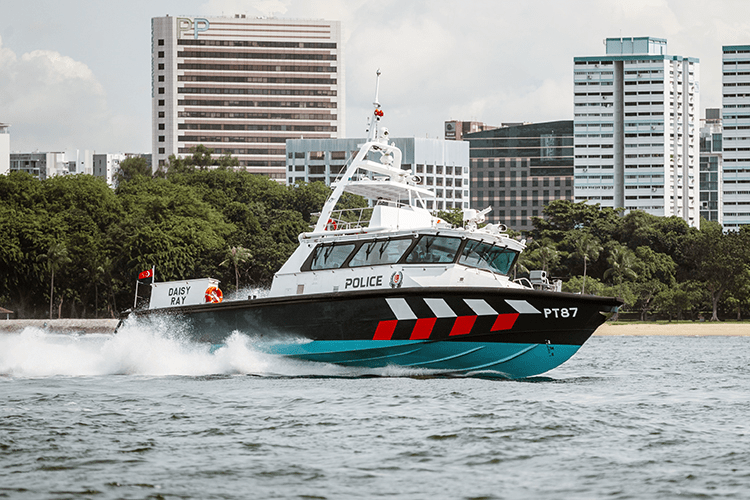
Image credit: SPF
But, you might be surprised to find out that PCG officers’ unique job scope sees them spending as much time on land as they do on water. They’ll take to the seas piloting boats like the 5th Generation PT Class Patrol Craft which can reach speeds of over 55 knots, or 101.9km/h.
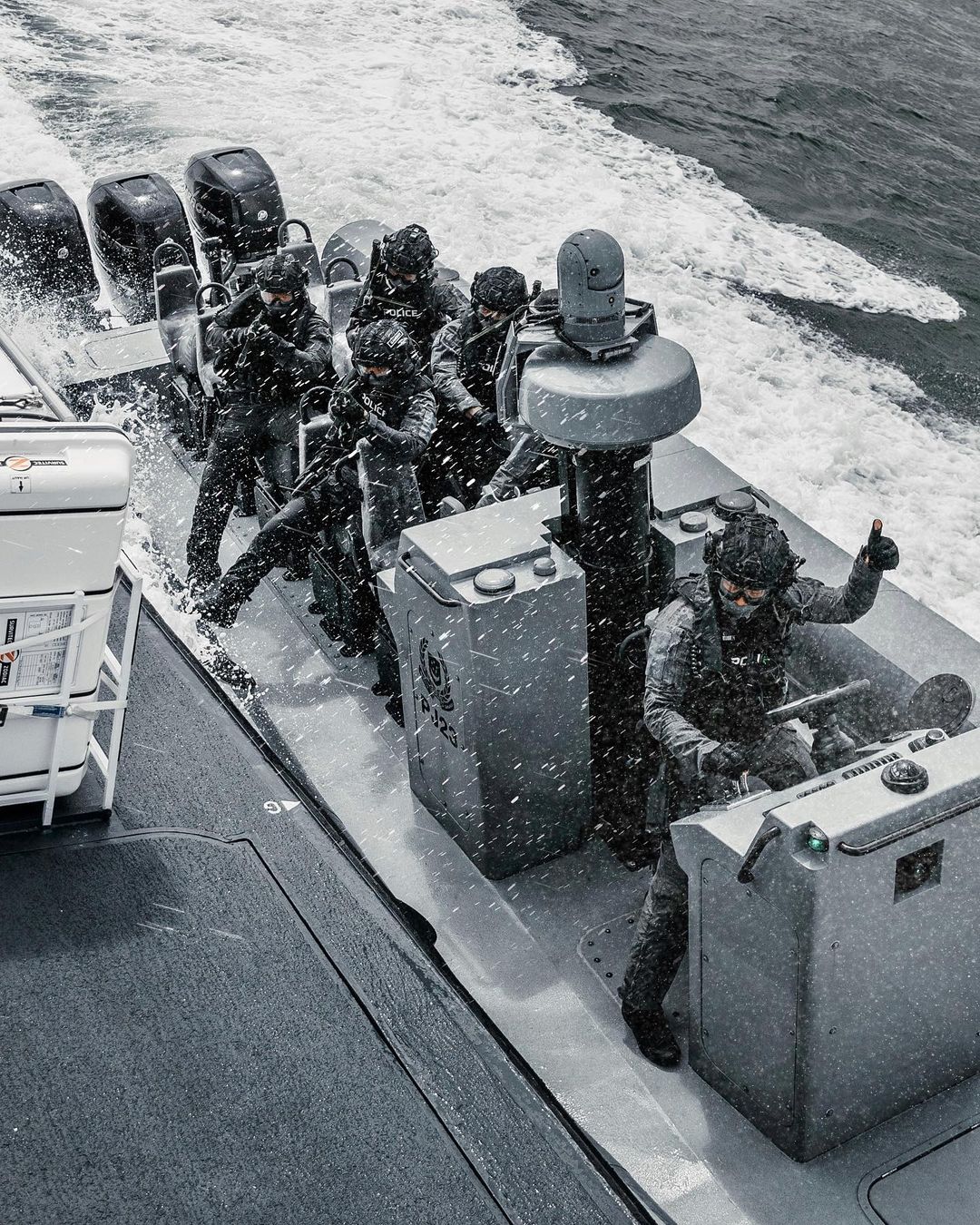
Image credit: SPF
But, staying vigilant 24/7 comes with a cost, as PCG officers might be required to take up odd-hour and, at times, multiple day shifts to carry out their duties fittingly. To combat this, PCG teams are structured for officers to provide mutual assistance, ensuring that they can rely on one another for support during long shifts.
Fun fact: the PCG even has their very own special forces, in the form of the Special Task Squadron, and there are currently 3 female officers who have made the cut to join the ranks of this elite unit.
5. Does the Criminal Investigation Department use any cool technology to aid their investigations?
As technology evolves, so do the methods used by criminals. Therefore, it is crucial for the SPF to stay ahead by adopting advanced tools to investigate crimes committed online.
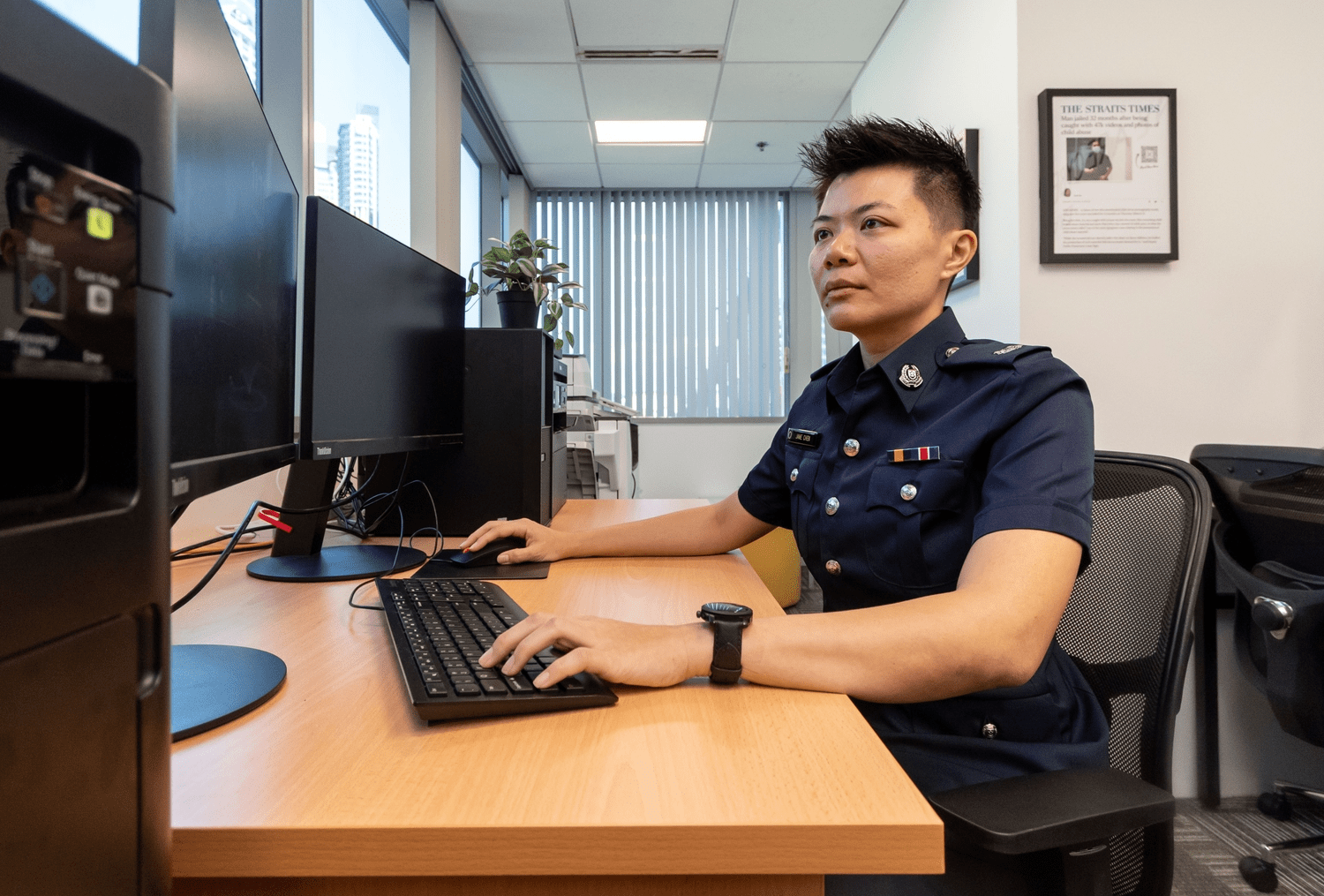 Image credit: SPF
Image credit: SPF
One example is the Cyber Guardian Lab, which was operationalised in June 2023. This facility is designed to assist officers in processing Child Sexual Abuse Materials (CSAM) as part of their investigations.
The lab offers access to INTERPOL’s International Child Sexual Exploitation image and video database, and is equipped with CSAM processing software, and a Digital Forensics Kiosk.
Investigation Officers can tap into features like the Digital Forensics Kiosk to extract data from seized storage devices, and run through an AI programme to sift through the extracted materials, identifying illegal or obscene materials.
CSAM processing software further analyses the material to determine if it was previously indexed as CSAM. These tools significantly enhance the speed and accuracy of investigations, helping officers tackle complex crimes involving online child sexual exploitation more efficiently.
6. Does the Singapore Police Force log & track down every caller who dials “999”?
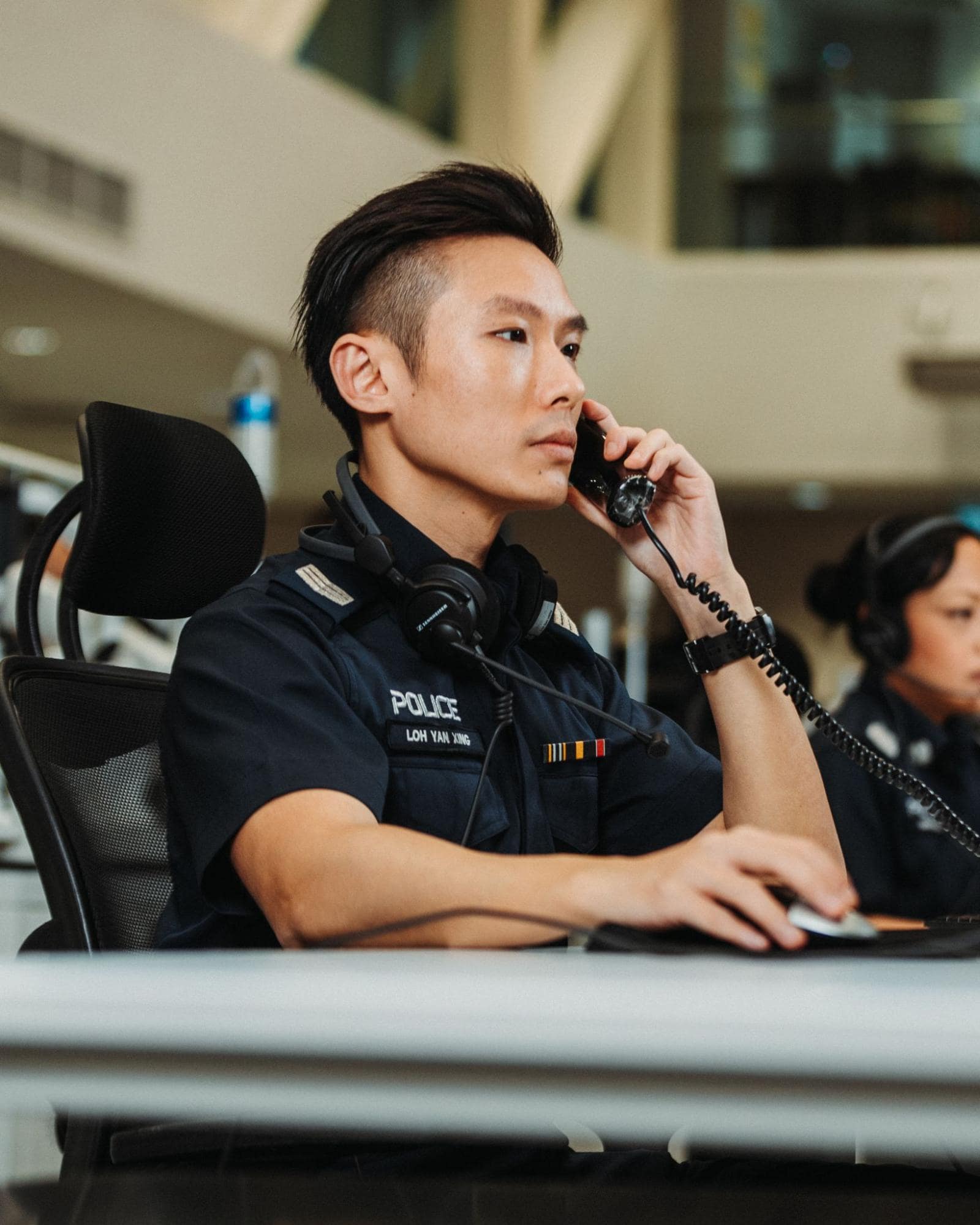 Image credit: SPF
Image credit: SPF
We all know the dire implications of dialling “999”, and so does the SPF. They take calls very seriously, but not solely because they want to apprehend prank callers or other abusers of the hotline.
Police officers have pledged to respond to “999” calls within 10 seconds, and to arrive and respond to urgent incidents within 15 minutes. As such, the SPF is required to track down the origin of the call to ensure the safety of the caller.
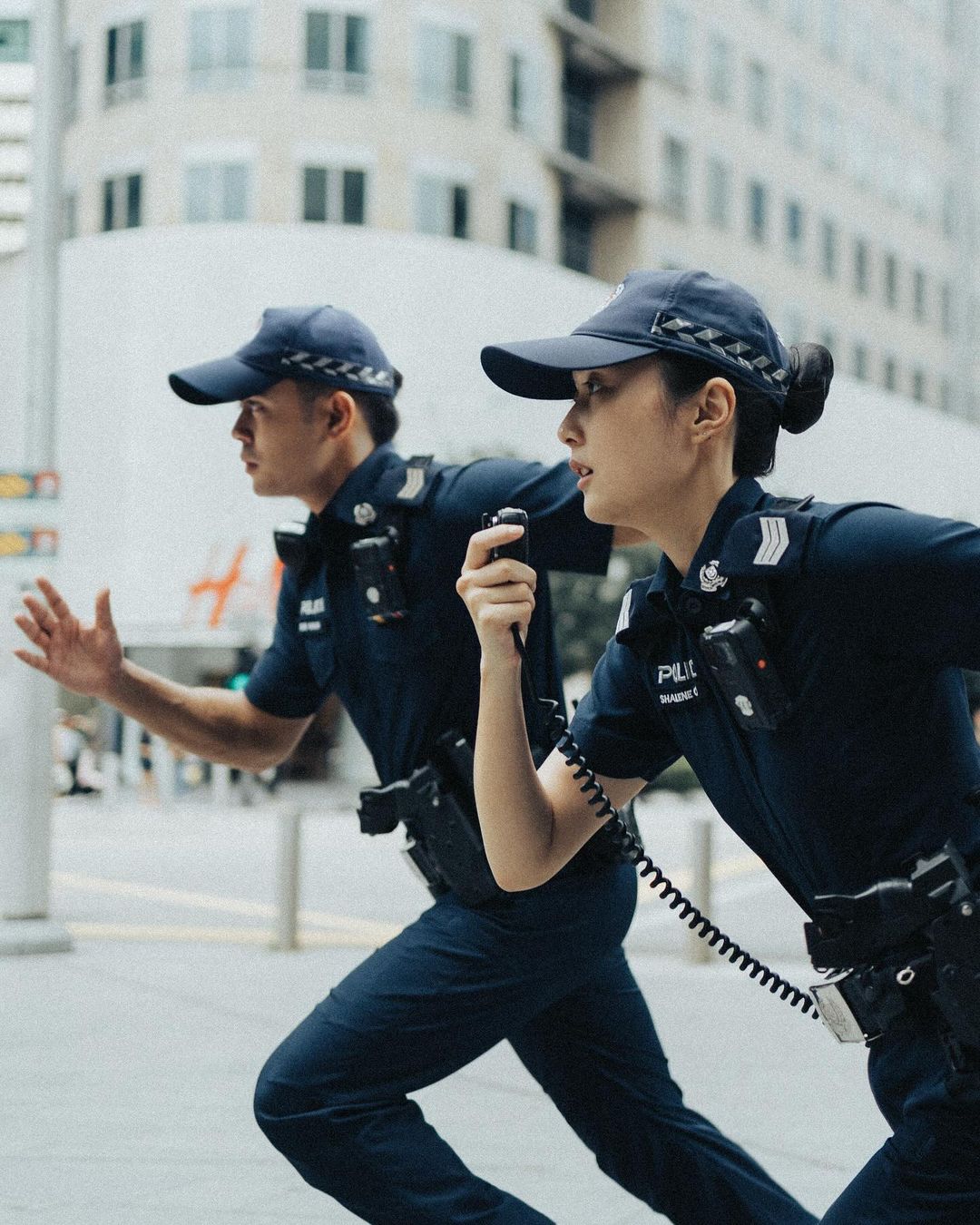
Image credit: SPF
Of course, they’ll take appropriate actions when it comes to dealing with deliberate prank callers, as these calls might disrupt the work of the officers who may need to spring into action immediately in times of genuine emergency.
7. Since Singapore is such a safe country, is there still a need for officers to train?
With Singapore being as safe and peaceful as it is, we often take its relatively low crime rates for granted. Just take a glance at your neighbourhood coffee shop during lunch; you’ll often catch diners chope-ing seats with their valuables and yet no one bats an eye, let alone pockets them for themselves.
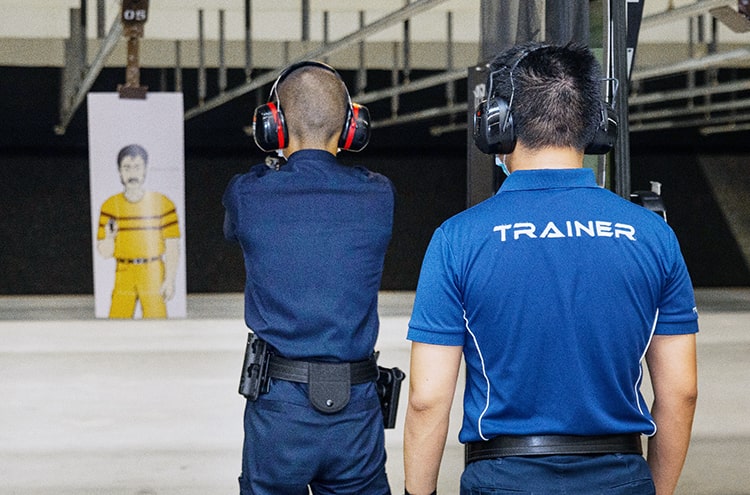
Image credit: SPF
But, this does not mean that our Police officers can call it a day and hang up their boots prematurely. They still need to undergo routine training to keep themselves operationally ready, so they can tackle any potential emergency head on. The SPF’s officers keep their skills sharp through regular training sessions; these include tactical, physical, firearms and contact tactics training just to name a few.
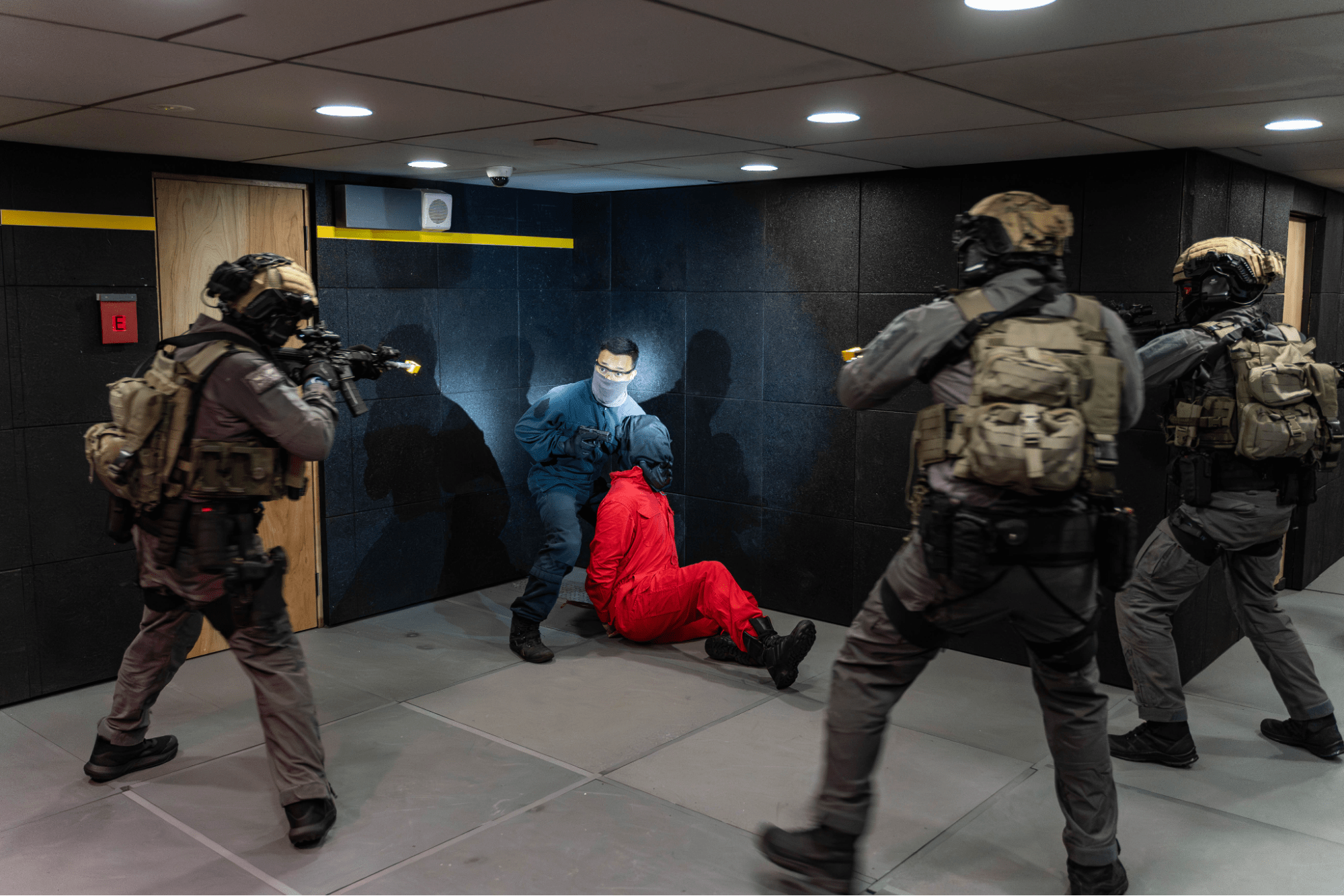 Image credit: SPF
Image credit: SPF
For more realistic simulations that mimic real-life scenarios, the SPF also conducts training in spaces such as the PCG’s Boarding and Search Trainer. It’s a training facility which replicates a vessel’s layout that PCG officers use to carry out faux missions, like dealing with a hostage situation on board.
Consider a fulfilling career with the Singapore Police Force
Should safeguarding the peace of our Little Red Dot be something you’d like to pursue as a career, then there’s really no better place to look than the SPF. They’ve got a slew of specialisations within their organisation, so there’s bound to be a place within the Force for everybody.
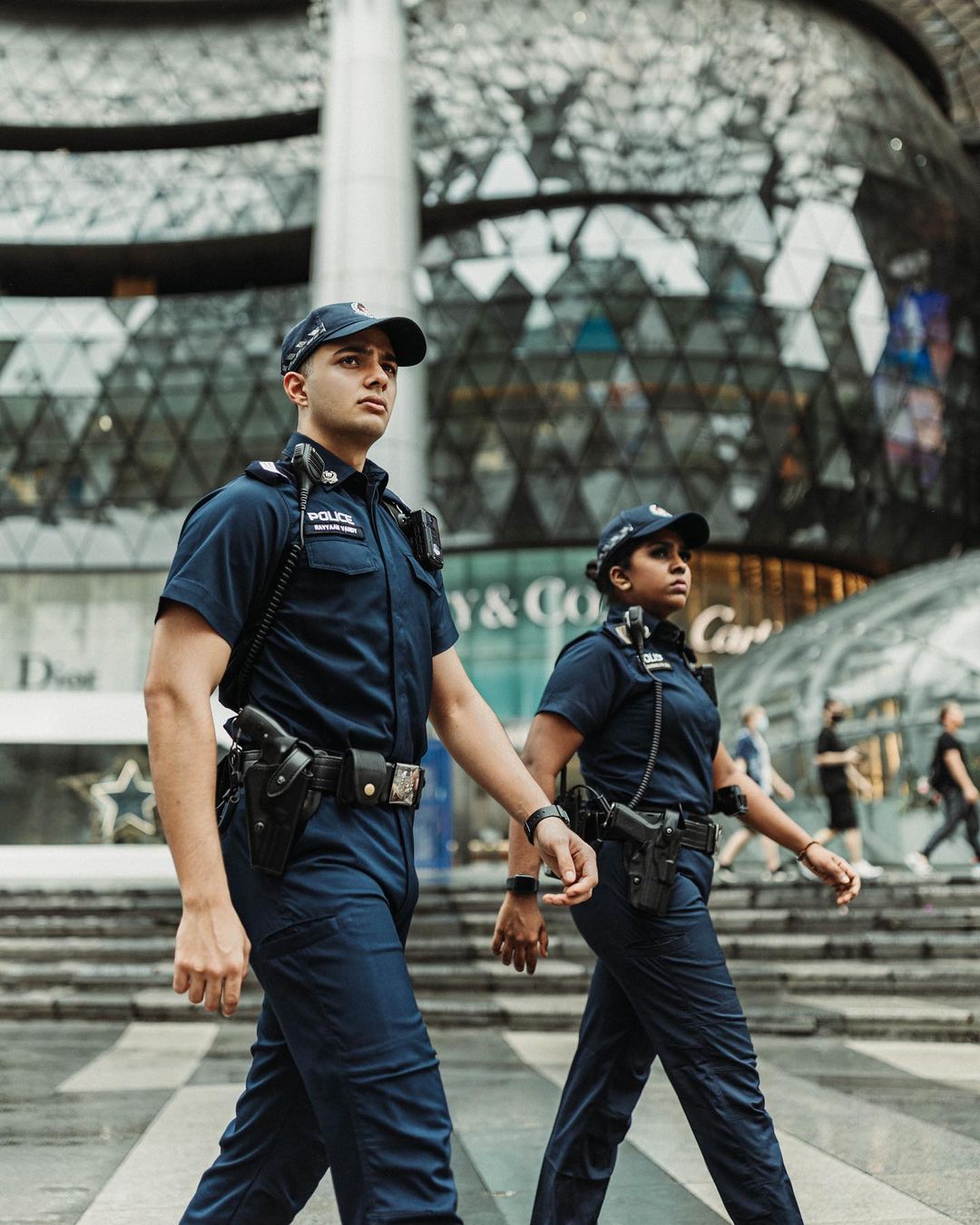
Image credit: SPF
Dog lovers can befriend and work alongside a furry teammate at the Police K-9 Unit, while those who find the sea breeze particularly calming will fit right in with the PCG. As an added cherry on top, the sign-on bonuses are also lucrative, as Inspectors and Sergeants can expect bonuses of up to $20,000 and $35,000 respectively.
There are also a couple of scholarship and sponsorship programmes to consider, if you’d like to further your studies with the support of the SPF. Regardless of your reason for putting on the uniform, rest assured that you’ll be in for a fulfilling and respected career that allows Singaporeans to sleep soundly at night, knowing that they are in your safe hands.
Learn more about careers with the Singapore Police Force
This post was brought to you by the Singapore Police Force.
Cover image adapted from: SPF
